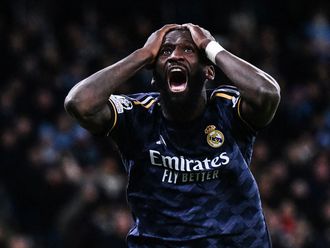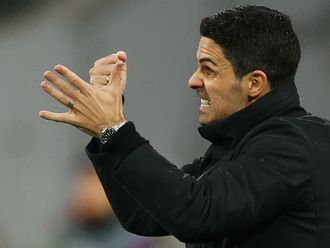Milan: Argentinian football legend Diego Maradona has won his right to return to Italy after being cleared of owing nearly €40 million (Dh200 million) in taxes.
Maradona, the World Cup winner who helped Napoli to their only two league titles in Serie A in 1987 and 1990, had been banned from setting foot in Italy because of an alleged unpaid tax bill of €37.2 million.
The former player’s lawyer, Angelo Pisani, said on Friday that his client had been cleared, two years after the authorities relaunched the case, which dates back to 2005.
“Maradona has finally been liberated from this fiscal nightmare and the accusations he faced,” Pisani said.
An Italian court in 2005 ordered Maradona to pay €37.2 million, €23.5 million of which was interest, after being accused of tax evasion. The case was relaunched in 2011 due to a series of procedural errors.
The court re-investigating the case annulled the proceedings against Napoli Football Club and its former employees, notably Maradona but also Brazilians Careca and Amemao.
Pisani said on Friday that the former star, one of the greatest but also most controversial figures in football, would now attempt to win nearly €40 million in damages for defamation.
The news will come as welcome relief for a figure who has courted controversy throughout his career, not least because of his disputed first goal in Argentina’s 2-1 victory over England in the 1986 World Cup that he claimed was the “Hand of God”.
The match was already a highly charged encounter given the short war that Britain had fought in its Falkland Islands territory in the South Atlantic Ocean after Argentinian troops invaded and claimed sovereignty in 1982.
In 1987, the diminutive playmaker led Napoli to the Serie A title, repeating the feat in 1990. In 259 appearances with Napoli between 1984 and 1991, Maradona scored 115 goals for the Partenopei.
He went on to a coaching career which has been largely mediocre, coaching the Argentinian national side (2008-2010) and United Arab Emirates club Al Wasl (2011-2012).










